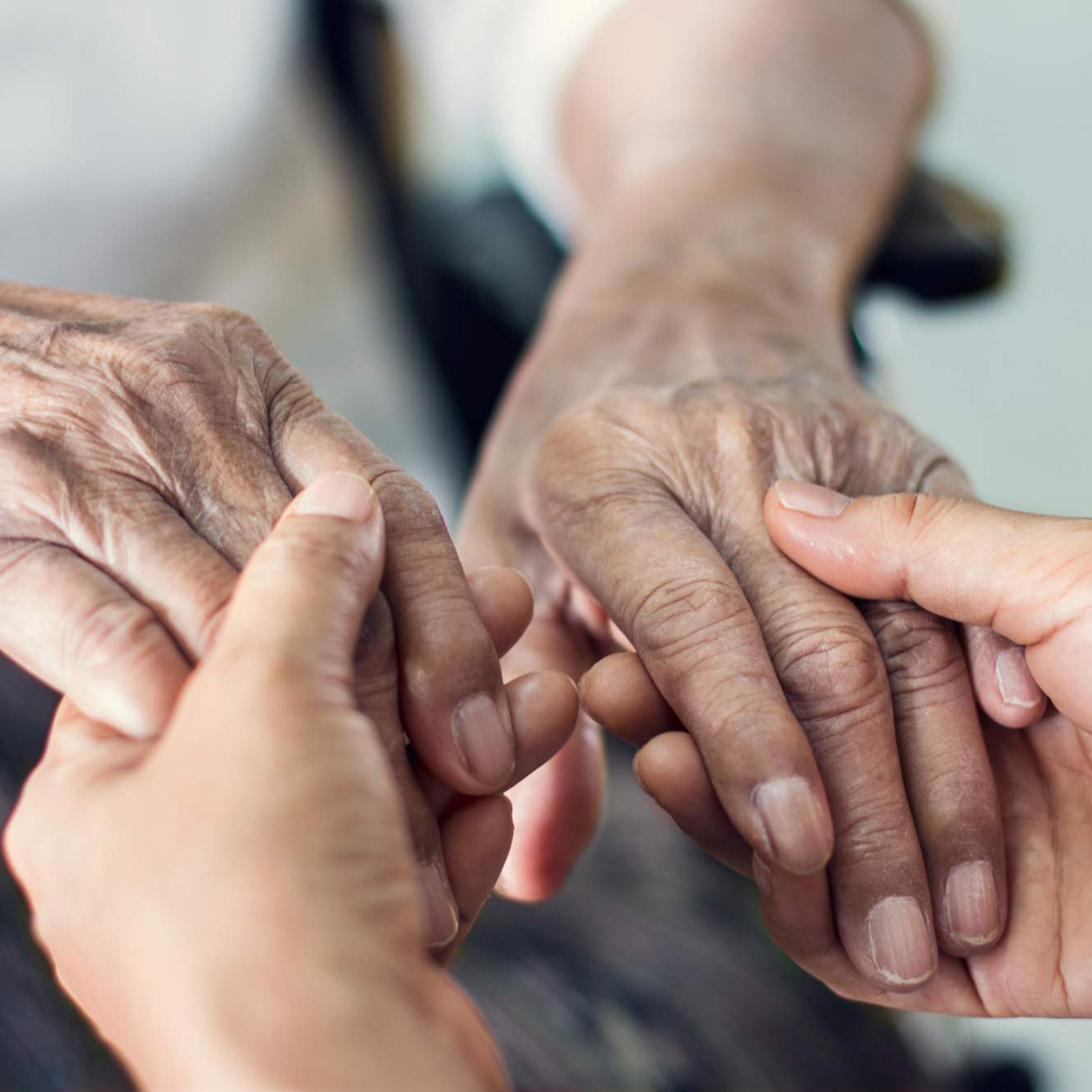Alzheimer’s / Dementia Care
Creating calm structure is essential.
Alzheimer’s / dementia care involves specialized training that emphasizes flexibility, embracing the here and now of the patient experience, and being willing to go with the flow to preserve familiarity and comfort.

Our experience in providing service to people with cognitive disabilities dates back to 2000 and applies to many of the same challenges as memory loss and impulsive behaviors (this care is specialized to address the same part of the body), making us a perfect fit for providing the patience-based, understanding care for your loved one with Alzheimer’s / dementia. Our staff use the same patient instructional approach to make sure that our patients with Alzheimer’s / dementia are attending to their personal needs, have established routines, and have a regular set of staff to ensure as much familiarity as possible. Many of our staff members are Certified Montessori Dementia Care professionals who have undergone extensive training in this very special area of care.
Our team of case managers, nurses, and social workers provides a complete approach to caring for the physical needs, as well as the time sensitive and financial responsibilities that are associated with remaining at home. These needs include the shopping, the paying of bills, the taking of medications, the scheduling of and getting to important appointments, or simply getting out into the community for visiting and social activities.
Remember – caring for an individual involves taking care of the person and taking care of the caregiver. The more support you’re able to bring in, the better you will be able to help your loved one.
What to expect when caring for someone with Alzheimer’s / dementia
Alzheimer’s / dementia affects memory, thinking, language, judgment, and behavior. Later on, it also leads to declining physical health. Alzheimer’s and dementia are often termed together, as Alzheimer’s is the most common type of dementia. Although there are many forms of dementia which, in reality, is just a general term for all the different symptoms of memory loss, declining motor skills, changes in behaviors, and more, the approach to care is generally the same.
We believe in having a real conversation about what to expect, so please excuse our frankness.
Allwel’s experience in providing service to individuals with traumatic brain injuries dates back to 2000. Our experience has helped us understand the challenges of memory loss and impulsive behaviors. This makes us a perfect fit for providing understanding care for your loved one who has Alzheimer’s / dementia. Our staff use the same gentle approach to make sure that our patients are attending to their personal needs and have established routines, as we know that familiarity provides comfort to our patients. We strive to provide familiarity and routine through our staffing process as well.
Our team of care navigators, nurses, and social workers are trained professionals who can provide additional services to manage beyond the physical needs of your loved one. We can also assist with the time sensitive and financial responsibilities that are associated with living in their own home. These needs can include shopping, paying bills, managing medication refills, scheduling important appointments, or simply getting out for visiting and social activities.
Remember – caring for an individual involves taking care of the person and taking care of the caregiver. The more support you’re able to bring in, the better you will be able to help your loved one.
Creating a Routine as Familiarity and Comfort
Many of the challenges that bring out behavioral outbursts and negative emotions from the person being cared for can be prevented by establishing and keeping to a consistent routine. Same wake-up time, same time for breakfast, keeping things in the house in the same places, same times for and types of activities. This is very important. Also, having your loved one do as much for themselves as possible is equally important. Just because a person cannot do one activity does not mean they cannot do another. Experiment and try again often. Again, what can be done one day may not be able to another, but the reverse can also be true. Just keep in mind what will be safe and what will not. Incorporate as much visitors and social interaction as possible, but not so much as to overwhelm.
Communication with the Person Being Cared For
It goes without saying that patience is the essence of all communication as your loved one’s physical and mental abilities decline. The further along your loved one is in the progress of their dementia, the more simple the communication should be, such as limiting to yes or no questions versus offering open ended choices like “what do you want to do today?”. Limit ideas to one at a time. Remember that the speed at which information is processed declines, and there will be a point where even the simplest tasks will have to be broken down into each component. You will have to be the person who recognizes that the conversation is becoming futile. Feeling frustrated will be normal. Losing patience will happen. Take a break. Recharge. Ask for help from your backup. It is important to meet your loved one where they are at presently in communication abilities, not to argue your point or try to correct them. If, for example, they tell you it’s 1962, then accept their present belief and move onto another topic rather than trying to convince them it’s the present year. Arguing or correcting will not improve their quality of life. The more you attempt to disprove their point, the worse they will feel about their own comprehension and self.
How Do I Pay for This?
The options for paying for Alzheimers/dementia home care are either private pay or payment through a long-term care insurance plan or approval on the Nursing Home Transition and Diversion Waiver program. Please call us to discuss what works for your situation.

